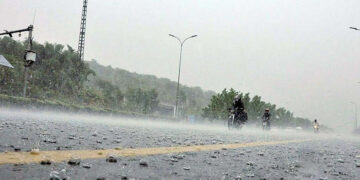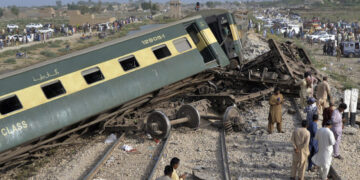![]() Follow Us on Google News
Follow Us on Google News
In the face of the global challenge posed by climate change, a silent crisis emerges as a significant threat to the well-being of children worldwide. According to a recent report from UNICEF titled “The Climate-Changed Child,” the situation is dire, building upon the findings of the 2021 Children’s Climate Risk Index.
Shockingly, the report reveals that one billion children across the globe are at an extremely high risk due to the impacts of the climate crisis. This alarming statistic encompasses a substantial number of Pakistani children, whose prospects are increasingly eroded by environmental degradation and climate-induced disasters.
A critical aspect of this crisis revolves around water scarcity. As of 2022, a staggering 739 million children confront high or extremely high water scarcity, with 436 million residing in regions marked by high or extreme water vulnerability. This data underscores the pressing need for action in Pakistan, a country grappling with severe water challenges.
Furthermore, climate change is disrupting the fundamental right to education. Annually, climate-related disasters disrupt the education of 40 million children globally, impeding long-term development and growth. Children’s unique vulnerability to climate change is exacerbated by environmental hazards such as pollution, extreme weather events, and malnutrition. Their developing brains, lungs, and immune systems are particularly susceptible, making this issue a global concern spanning low- and high-income countries alike.
A cause for concern is the neglect of children’s needs in responses to climate change. A mere 2.4% of climate finance is dedicated to child-focused activities, a oversight that significantly impacts the future of the youngest generation. With COP28 on the horizon, there is a crucial need to refocus climate strategies and policies on children.
Pakistan, alongside other nations, must commit to ensuring a clean, healthy, and sustainable environment for children. This involves integrating children’s needs and rights within the UN’s climate framework, adapting services, and reshaping education systems to withstand climate adversities. Addressing climate change should not overshadow the imperative of securing our children’s future. Amplifying their voices and needs in the climate conversation is not only an environmental imperative but also a moral one. Failing our children would constitute a profound failure in the most unimaginable way.






























